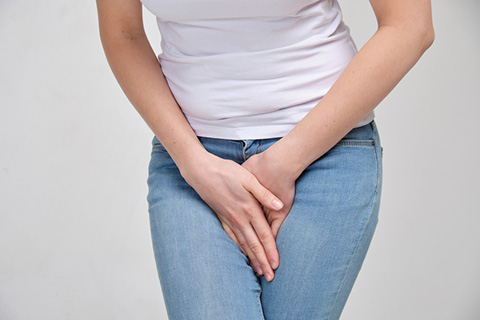
Bladder urgency is a sudden, strong need to urinate that can be difficult to control. For many women, this can disrupt daily life and lead to embarrassing situations. Understanding the triggers behind bladder urgency is key to managing symptoms and regaining confidence.
In this blog, we’ll explore what bladder urgency triggers are, how they work, and the 10 most common triggers to help you take control of your bladder health.
What Are Bladder Urgency Triggers?
Bladder urgency triggers are specific factors that can irritate the bladder or signal the brain to create a strong urge to urinate. These triggers can be physical, dietary, emotional, or environmental, and they often contribute to the feeling of urgency even when the bladder is not full.
How Do Bladder Urgency Triggers Work?
The bladder is controlled by a complex system involving the nervous system and the pelvic floor muscles. When the bladder fills, it sends signals to the brain indicating the need to urinate. However, certain triggers can heighten sensitivity, irritate the bladder lining, or disrupt the normal signaling process, leading to an exaggerated or premature urge to urinate.
For example, bladder irritants such as caffeine or acidic foods can stimulate the bladder lining, while emotional triggers like stress can activate the nervous system and create a false sense of urgency.
10 Most Common Bladder Urgency Triggers
Identifying and managing triggers is an important step in controlling bladder urgency. Here are 10 common bladder urgency triggers:
- Caffeine
- Alcohol
- Spicy Foods
- Citrus Fruits
- Artificial Sweeteners
- Carbonated Beverages
- Dehydration
- Constipation
- Stress and Anxiety
- Cold Weather
Found in coffee, tea, energy drinks, and chocolate, caffeine acts as a diuretic, increasing urine production and irritating the bladder lining, leading to frequent and urgent bathroom trips.
Alcohol can irritate the bladder, increase urine output, and interfere with bladder signaling, making it harder to control urgency.
Foods with strong spices, such as chili peppers, can irritate the bladder lining and contribute to increased urgency sensations.
Oranges, lemons, limes, and grapefruits contain high acidity, which can irritate the bladder and lead to urgency and frequency.
Found in diet sodas, sugar-free gum, and many processed foods, artificial sweeteners can be bladder irritants and may contribute to urgency episodes.
The carbonation in sodas and sparkling water can cause bladder irritation and lead to increased urinary urgency.
Not drinking enough water can concentrate urine, making it more irritating to the bladder and increasing urgency symptoms.
A full bowel can put pressure on the bladder, leading to a sensation of urgency even when the bladder isn't full.
Emotional stress and anxiety can stimulate the nervous system, causing the bladder to contract involuntarily and create the feeling of needing to urinate urgently.
Exposure to cold temperatures can trigger bladder urgency as the body tries to regulate its temperature by increasing urine production.
How to Manage Bladder Urgency Triggers
Once you've identified your triggers, you can take proactive steps to manage bladder urgency:
- Track Your Triggers: Keep a bladder diary to identify which foods, drinks, or situations exacerbate your symptoms.
- Make Dietary Adjustments: Reduce or eliminate known bladder irritants and replace them with bladder-friendly alternatives.
- Practice Pelvic Floor Exercises: This could be relaxation or activation, this is where an assessment comes in really handy. Are you too tense, too weak or both?
- Stay Hydrated: Drinking enough water helps dilute urine and minimize bladder irritation.
- Manage Stress: Incorporate stress-relief techniques such as deep breathing, yoga, or mindfulness to calm your nervous system.
Final Thoughts
Bladder urgency can be frustrating, but with the right knowledge and management strategies, you can take control of your bladder health and restore your confidence. By recognizing and making adjustments to common triggers, you can reduce urgency episodes and enjoy a more active lifestyle.
If you're struggling with persistent bladder urgency, consider seeking professional support for personalized strategies to regain control.
